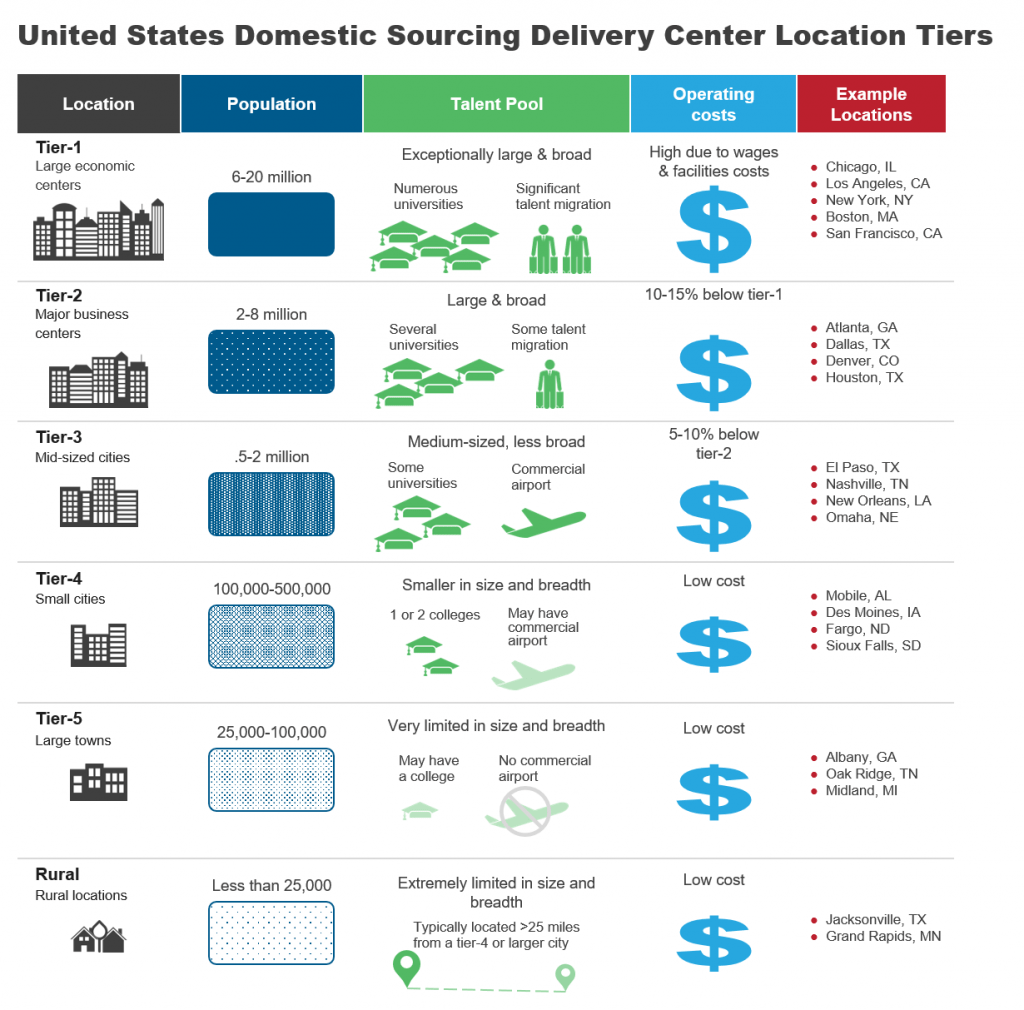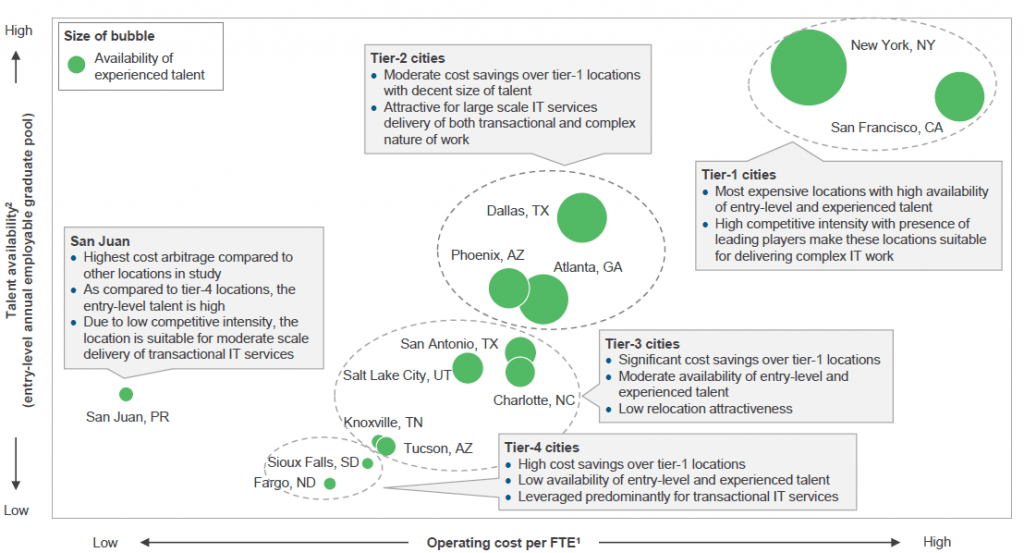Blog
U.S. Domestic Locations for IT Services Delivery: Your Trump Card amidst H-1B Uncertainties | Sherpas in Blue Shirts

As part of President Donald Trump’s immigration reform efforts, the recently introduced legislation could make hiring H-1B visa holders significantly more expensive. The legislation calls for more than doubling the minimum salary of H-1B visa holders to $130,000.
The technology sector is the largest consumer of the visa. And about 70 percent of the 85,000 visas issued every year go to Indian workers employed by technology and outsourcing service providers to provide IT services to leading American enterprises.
Such a massive hike in the proposed minimum salary for H-1B visa holders is forcing enterprises and service providers alike to rethink their talent strategy from offshore to onshore. Factors such as adoption of agile methodology and regulatory requirements are also driving up the demand for onsite resources, and those will likely need to be sourced locally from within the U.S. as the landed resource model become challenged.
This increased focus on onshore resources has both enterprises and service providers alike considering the merits of potential U.S. locations. The landscape of IT services delivery from within the U.S. is complex, with more than 150 leverageable locations. The help simplify the view, Everest Group has classified delivery locations in the country into various tiers based on socio-economic status, maturity of IT services delivery, talent availability, and operating costs.

Deciding on the best location for U.S.-based IT services delivery must be based on a business case that considers multiple factors, and perhaps some trade-offs. For example, Tier-2 locations offer the twin advantage of moderate operating cost and breadth and depth of skills, but you might have difficulty attracting resources with extremely specialized skills to move from a Tier-1 city such as San Francisco to Dallas or Atlanta. And although Tier-3 and 4 locations are suitable for low-cost transactional IT services delivery, they may not be appropriate options if you need, or anticipate needing, more advanced skills.

While the proposed legislation hasn’t yet become law, turbulence and disruption of this potential magnitude demands significant research and pre-planning. As Benjamin Franklin, one of the founding fathers of the United States said, “By failing to prepare, you are preparing to fail.”
For more information on this topic, please read the following Everest Group reports.